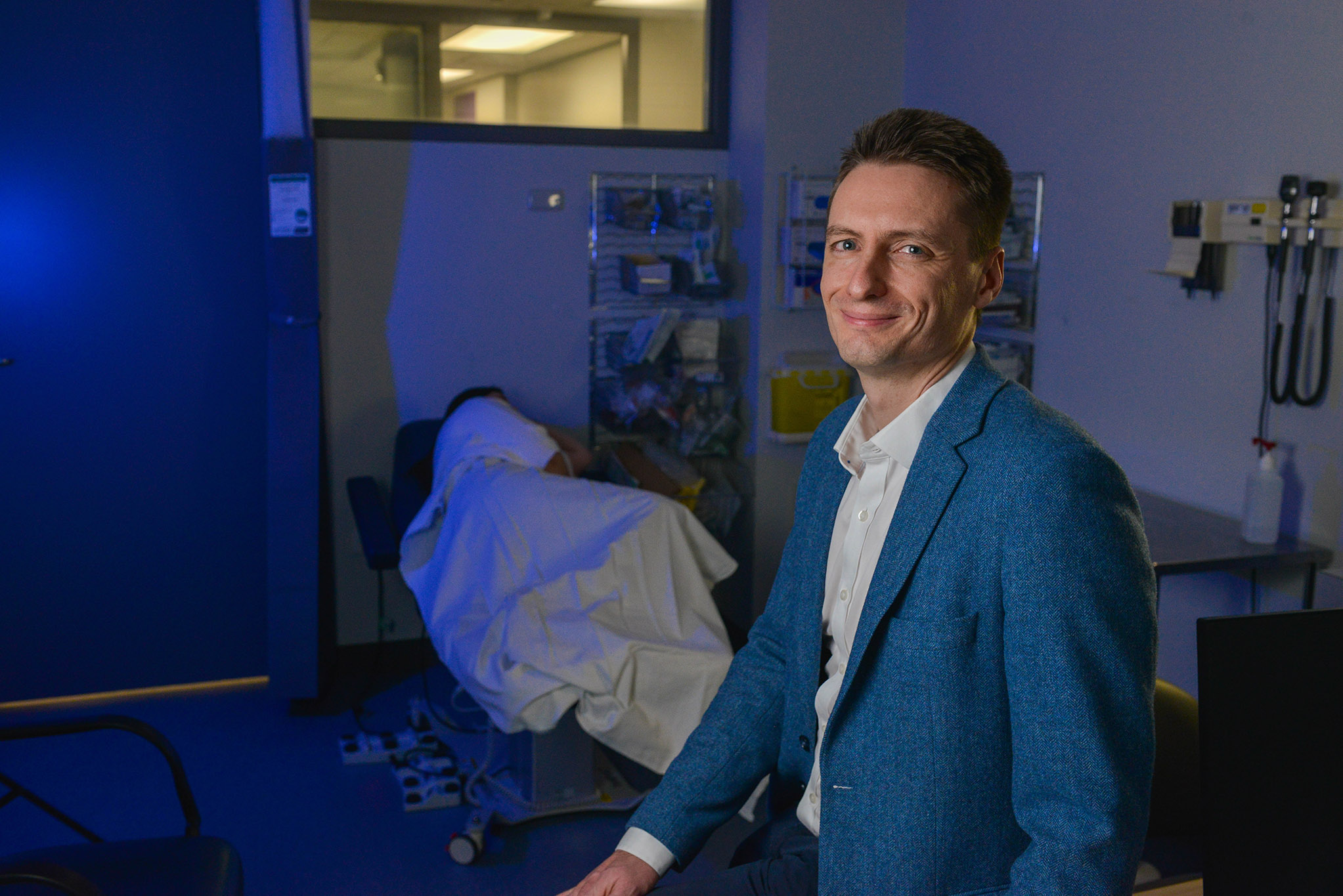
The opportunity to plug into the research expertise and clinical facilities at Flinders University has provided Flinders medical alumnus Dr Alex Barnes (MD ’13) with a new way of looking at the effects of Inflammatory Bowel Disease (IBD).
The combined resources of Flinders University and Flinders Medical Centre (FMC) have provided unique inspiration for the continued studies of Dr Barnes, who is completing a PhD at Flinders that examines the significance and aetiology of sleep disorders, fatigue and mental health conditions in people with IBD.
Dr Barnes, who graduated from Medicine at Flinders in 2013 before undertaking an IBD fellowship at FMC, built the idea for his PhD on exploring gaps in the existing knowledge of IBD. While diet is understood to have an influence on inflammation of the bowel, limited research had been done into the effect of sleep deprivation on this disease. Dr Barnes thought that Flinders’ strong sleep expertise and sleep research community could help.\
“There was some research about 10 years ago that showed people with Inflammatory Bowel Disease have quite poor sleep, but that hasn’t been addressed further,” says Dr Barnes.
“We know that if you deprive people of sleep, markers of inflammation in their blood go up – so we wanted to investigate further.”
Pursuing this line of research has resulted in surprises for Dr Barnes, who is in the third year of his PhD, being completed part-time alongside his ongoing clinical work.
“I didn’t think that sleep apnoea was as common among people with Inflammatory Bowel Disease,” he says.
“We are certainly seeing more obesity amongst people with Inflammatory Bowel Disease, which will predispose them to sleep apnoea, however this does not explain the entire picture, with further research required.”
There is also evidence that sleep apnoea changes the microbiome, and Dr Barnes thinks this may influence IBD.
To build a larger body of objective data, Dr Barnes is now recruiting more people for sleep study tests in their home.
“I’m very fortunate to have the FMC sleep study facilities available, including expert sleep researchers such as Associate Professor Sutapa Mukherjee,” says Dr Barnes.
“Will this research mean that patients don’t need as many medications? Will it mean that the symptoms are less severe, or that people don’t need to go to hospital as much? These are the outcomes that we want to try and influence.”
Dr Barnes says his line of research underlines the scale of possibility for diverse and innovative investigations through working with Flinders.
“There is a lot of opportunity here with the hospital and University working so closely together. It is a place of possibility.”

